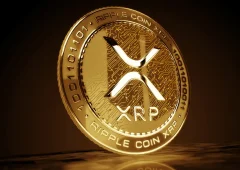Yuga Labs Moves to Dismantle ApeCoin DAO in Favor of Centralized Structure
07.06.2025 15:00 2 min. read Alexander Stefanov
In a bold move to reshape the future of ApeCoin, Yuga Labs has introduced a proposal that would dissolve the existing ApeCoin DAO and replace it with a streamlined management body called ApeCo.
The initiative, led by Yuga CEO Greg Solano, aims to eliminate what he sees as inefficiencies and lack of progress under the current decentralized governance model.
Solano argues that while the DAO played a valuable role in ApeCoin’s early days, it has since become bogged down by “governance theater” and wasteful initiatives. In his view, too much time and money have been spent on proposals that deliver little value to the broader ecosystem. “It’s time to sunset the DAO,” he posted on X, calling for a faster, more accountable structure to drive development.
Under the proposal, all governance rights held by tokenholders would be revoked. Existing AIPs (Ape Improvement Proposals), working groups, and DAO elections would be dissolved. Assets controlled by the DAO—including smart contracts, infrastructure, and intellectual property—would be transferred to the newly formed ApeCo.
ApeCo, as envisioned, would be created and run directly by Yuga Labs. It would prioritize funding for high-impact initiatives, particularly those tied to Yuga’s core projects like ApeChain, Bored Ape Yacht Club (BAYC), and the Otherside metaverse. The emphasis would shift toward efficiency, strategic alignment, and professional execution.
Initial reactions from the ApeCoin community have been mixed, though many prominent voices support the proposed overhaul. Some see it as a necessary evolution, one that promises better leadership and clearer direction. “DAO fatigue is real,” wrote one member, praising the focus and structure promised by ApeCo.
Others, however, see the move as a power grab. Critics argue that dismantling the DAO undermines the community-first principles on which ApeCoin was built. One dissenting voice, Lanzer, called the proposal’s optics “damaging” and questioned the motives behind eliminating the DAO entirely.
Despite the controversy, the proposal has ignited serious conversation about the long-term governance of crypto ecosystems—and whether decentralization always serves innovation. As voting looms, the future of ApeCoin now hinges on whether the community favors collective governance or centralized leadership under Yuga’s banner.
-
1
U.S. Bank Advises Clients to Drop These Cryptocurrencies
29.06.2025 10:00 2 min. read -
2
Chinese Tech Firms Turn to Crypto for Treasury Diversification
26.06.2025 17:00 1 min. read -
3
FTX Halts Recovery Payments in 49 Countries: Here Is the List
04.07.2025 18:00 2 min. read -
4
What Are the Key Trends in European Consumer Payments for 2024?
29.06.2025 8:00 2 min. read -
5
What Brian Armstrong’s New Stats Reveal About Institutional Crypto Growth
29.06.2025 15:00 2 min. read
Greed Holds as Market Momentum Builds: What is the Market Sentiment
The crypto market remains firmly in “Greed” territory, with CoinMarketCap’s Fear & Greed Index clocking in at 69/100 on July 19. Despite a modest 24-hour dip from 71, the index has now held above 60 for 11 consecutive days.
Top 7 Crypto Project Updates This Week
The crypto industry saw major advancements this past week across DeFi, NFT, Layer 2, and AI-powered platforms.
Peter Thiel-Backed Crypto Exchange Files for IPO
Cryptocurrency exchange Bullish, backed by billionaire investor Peter Thiel, has officially filed for an initial public offering (IPO), marking a major step toward entering the public markets.
Tether Plans U.S.-Issued Stablecoin After Trump Signs GENIUS Act
With President Trump officially signing the GENIUS Act into law, the regulatory landscape for stablecoins in the U.S. has entered a new phase—prompting major reactions from the industry’s top players.
-
1
U.S. Bank Advises Clients to Drop These Cryptocurrencies
29.06.2025 10:00 2 min. read -
2
Chinese Tech Firms Turn to Crypto for Treasury Diversification
26.06.2025 17:00 1 min. read -
3
FTX Halts Recovery Payments in 49 Countries: Here Is the List
04.07.2025 18:00 2 min. read -
4
What Are the Key Trends in European Consumer Payments for 2024?
29.06.2025 8:00 2 min. read -
5
What Brian Armstrong’s New Stats Reveal About Institutional Crypto Growth
29.06.2025 15:00 2 min. read


